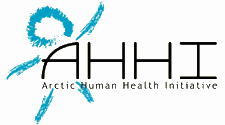Project Listing
Expansion of Networks
Title: Sustaining Arctic Observing Network for Health ![]() - Progress update (pdf)
- Progress update (pdf)
Summary of Activity
Human health is an integral component of the Arctic ecosystem. Life expectancy in arctic populations has greatly improved over the last 50 years due to a reduction in morbidity and mortality from infectious diseases, such as tuberculosis, and the vaccine preventable diseases of childhood and improved living condition and access to health care. However, significant health disparities remain between the indigenous and non indigenous populations in the arctic. Indigenous populations experience lower life expectancy, higher infant mortality; higher suicide rates higher rates of infectious diseases such as hepatitis b and tuberculosis and higher rates of some cancers. Health concerns of arctic peoples also include potential health impacts of environmental pollution, climate variability, and the rapid rate of modernization and associated social and cultural changes which may result in higher rates of obesity, diabetes, cardiovascular diseases and suicides.
The Centers for Disease Control and Prevention, Arctic Investigations Program, has established an International Circumpolar Surveillance (ICS) system for infectious diseases by creating a network of hospital and public health laboratories throughout the Arctic. The network allows collection and sharing of uniform laboratory and epidemiologic data among Arctic countries that will describe the prevalence of infectious diseases of concern to Arctic residents and assist in the formulation of prevention and control strategies. While currently focused on prevention and control of infectious disease the system also provides a model for standardized monitoring and respond to other non infectious health conditions of concern within Arctic regions. Many regional and national surveillance networks exist for monitoring health conditions of concern. Within the State of Alaska, the Alaska Surveillance, Epidemiology, and End Results (SEER) program collects and publishes cancer data as part of the National Cancer Institute’s overall SEER program, and the Alaska Native Stroke Registry is a project to increase the understanding of stroke in Alaska Natives, with the goal of improving stroke care. Circumpolar linkage of such networks would facilitate international collaboration, international standardization of data collection international comparison of comparable data, thereby greatly adding to our knowledge of Arctic health, and enhancing design of treatment and prevention.Contact
Dr Alan Parkinson
Arctic Investigations Program
Centers for Disease Control & Prevention
4055 Tudor Centre Drive. Anchorage Alaska
99508
USA
Tel: 907 729 3407
Mobile: no
Fax: 907 729 3429
Email: ajp1@cdc.gov
© 2006, Arctic Human Health Initiatives
All rights reserved.
